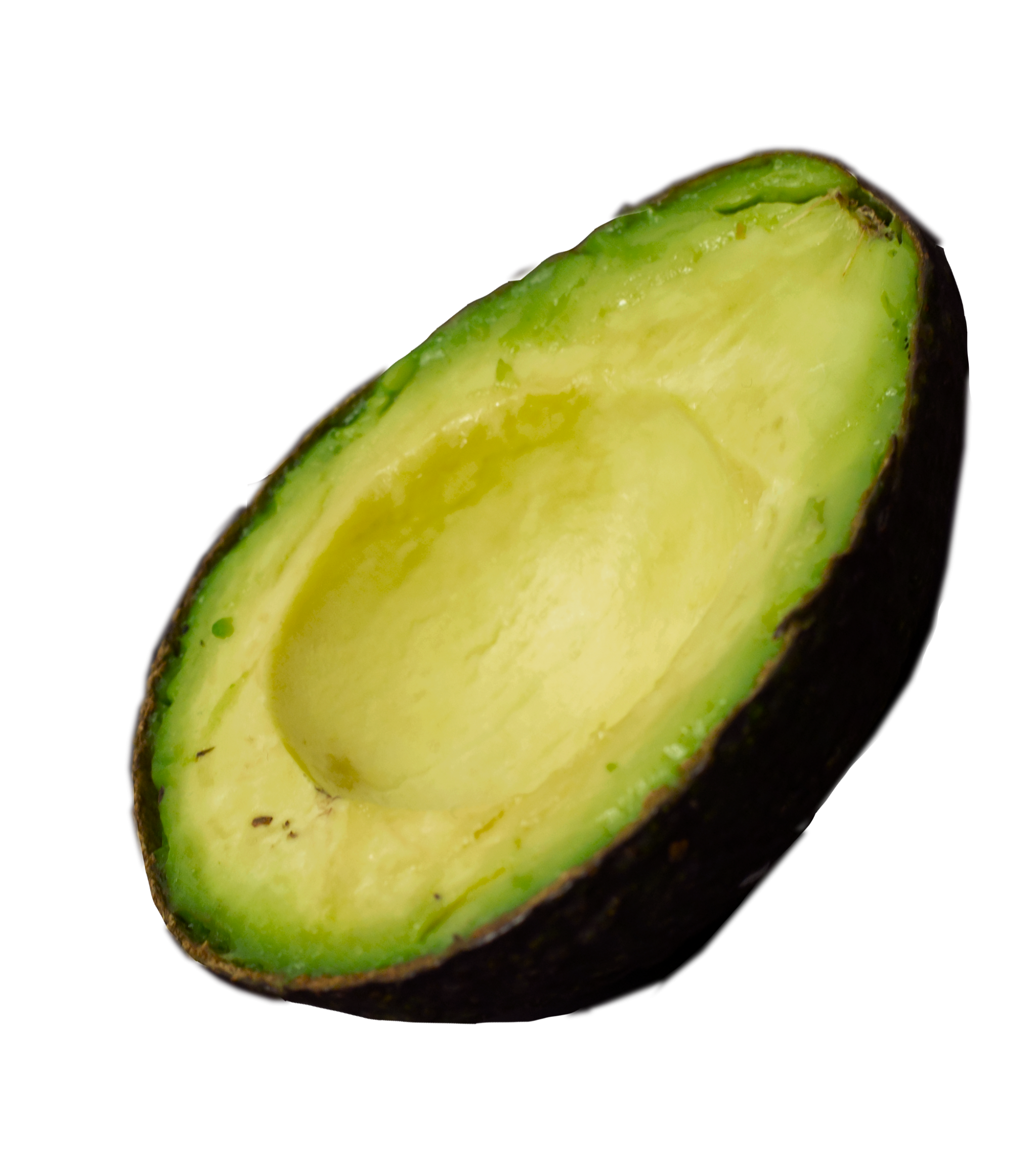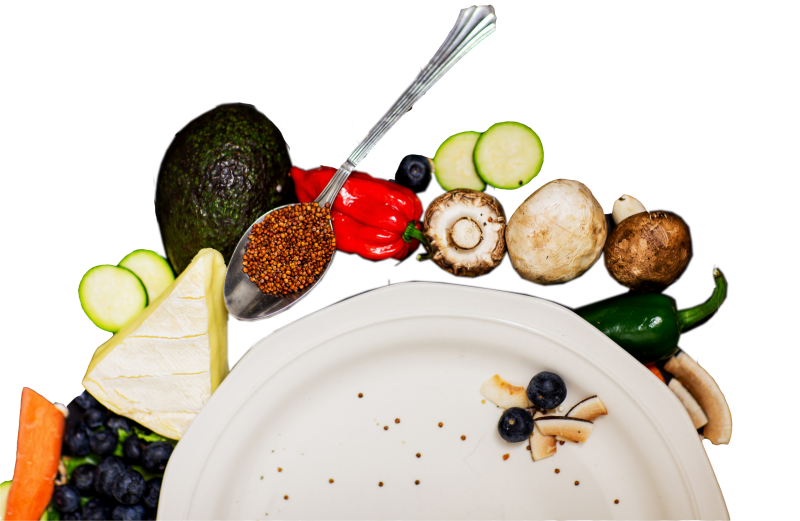No carbs, no problem; or is it? Investigating fad dieting and its effect on the body


Body image is a fragile subject in the modern world. It seems everyone is trying to look like an Instagram model or fit back into their jeans from 2011. Fitness has flooded social media with influencers who work out as a full-time job or girls who look like they don’t have an ounce of body fat on them frolicking around in a bikini. Of course, being “healthy” is subjective, as no two individuals have the exact same operating system when it comes to how their body functions. Eating habits and working out that can make one person look or feel their best may not yield results for someone else. Many people also want the instant gratification of this fitness lifestyle, which is why they turn to fad dieting. A fad diet is a diet that gains popularity through massive weight loss results in a short period of time, but after users find they cannot sustain their weight loss, the diet fades out. After years of users being stuck in this cycle until they find a sustainable solution, the diet hype finally dies out.
Currently, a diet trend taking over everyone’s feed it the ketogenic diet, also known as keto. The diet follows the traditional fad diet of not eating carbs, but the kick with keto is that your body will enter a state of ketosis, which assists in weight loss, though many low-carb or no-carb diets prove to provide water weight loss due to the nature of water retention. “Dieting isn’t sustainable – that’s the problem. Short term gain for long term pain kind of idea. I study body composition. Clearly not the best thing to focus on for you when you are trying to do exercise training, but when you diet, mostly with those fad diets, often the link between all of them is caloric restriction,” said Tom Hazell, associate professor in the department of kinesiology and physical education at Wilfrid Laurier University.
“You starve yourself to lose weight, but when you get off that diet you gain more weight. Every year that you fad diet you actually end up heavier than the initial, that’s what is called yo-yo dieting. Every year you go through this, you end up heavier and don’t start those healthy eating habits that we want. It’s so easy to do poorly.
As soon as you get off a cabbage soup diet, what do you want to do? Eat everything.”[Text Wrapping Break][Text Wrapping Break]The controversial nature behind these diets is their lack of scientific evidence to back up if they are actually beneficial for the consumer or may be more detrimental for their health. Carbohydrates usually account for almost 50 per cent of the average diet, with the Ketogenic diet virtually eliminating carbs for the consumer, with the argument for a poor diet being the overconsumption of processed fats and protein.
You starve yourself to lose weight, but when you get off that diet you gain more weight. Every year that you fad diet you actually end up heavier than the initial, that’s what is called yo-yo dieting. Every year you go through this, you end up heavier and don’t start those healthy eating habits that we want. It’s so easy to do poorly.
– Tom Hazell, associate professor in the department of kinesiology and physical education at Wilfrid Laurier University
“Everything is energy. People would argue the Keto diet is not a fad diet, [but] I would argue that it’s a popular diet; yes, carbohydrates are important for physical energy, but with that being said, you can turn fats and proteins into energy,” Hazell said. “People want to lose weight for [the] holiday season, vacations, reading week; they lose the weight, but they aren’t losing the right weight. There’s a lot of problems that come with crash diets –that’s what these fad diets are– you’re losing muscle and fat soyou actually have less muscle, which means your metabolic rate is lower. That means your energy expenditure for everything at rest is lower so when you go back to eating the way you did, you have an even greater positive energy balance and you gain weight.”
Many fad diets cause the consumer to become physically ill due to their restrictive nature, with many users complaining of dehydration, fatigue, headaches and nausea after continued periods on the diets. This can also cause users to plateau during their weight loss, as they cannot continue to restrict calories after reducing so many calories so quickly. “First it was juicing, then it was the cleanse, the South Beach diet and then it was Atkins; Atkins died of a heart attack. You need protein every day, whether you get that from vegetables or meat sources or dairy – wherever you get it from, you need it every day,” Hazell said. “You need fat. The only thing you don’t need really is carbs. You can make those things up from everything else, but there are essential fatty acids, there are vitamins and minerals that often come from what we call “wet carbs,” the vegetables and fruits. Your body composition is protein; your body is made up of tissue, there are amino acids and all your hormones that are all proteins. Carbs are driving factors for other things, but we can make them.”
An argument towards the Keto diet and other fad diets is whether or not the actual contents of the diet are what cause weight loss or if the restrictive nature of dieting is what causes the weight loss. With carbohydrates, proteins and fats can make up for the carbohydrate energy source in the body. They also hold water, which can be shown in weight loss rather than losing fat.
“In order to achieve an unattainable standard that probably isn’t the best thing to be striving for in the first place, it tends to also get people focused on quick and easy weight loss.
Dieting when it’s focused on weight loss and looking a certain way tends not to be sustainable and it also tends to encourage people to make choices that aren’t all that healthy to achieve their goal,” said Anne Wilson, professor in the psychology department at Wilfrid Laurier University.
“If you’re making a decision to do something that involves consistent self-denial or self-control, you have to exert all your willpower to not eat that food or to stay on a particular diet. That kind of behavioural choice tends to be difficult for human beings to sustain long term because, even though we can exert that control for a brief period when we’re really motivated, it tends to be the kind of thing that gets derailed because we have competing goals and don’t have unlimited resources.”
Dieting when it’s focused on weight loss and looking a certain way tends not to be sustainable and it also tends to encourage people to make choices that aren’t all that healthy to achieve their goal.
– Anne Wilson, professor in the psychology department at Wilfrid Laurier University
When it comes to breaking down certain diets, keto is not the only offender in the bunch. Diets like the Whole30, remove any foods that may cause inflammation in the body when consumed. Besides detrimental effects like restriction, the diet also can be high in cholesterol and sodium for the consumer.
“From a cultural analysis, one of the factors that can contribute to a cycle which results in eating disorders is that cycle of false hope and then failure and self-blame and shame and that sort of thing. People will try diets that are dubbed as quick fixes for everything; they might work for a little while and then they fail. Yo-yo dieting is not very good for our bodies,” Wilson said.
“Both psychologically and physically, that kind of ineffective dieting can lead people to potentially get more and more desperate to try anything that would work. Sometimes from that, eating disorders can arise from that because people are so focused on weight to the exclusion of health.”
Dieting not only has negative effects on the body, but psychologically, dieting can lower self-esteem as people are pressured into fitting a niche “fit” demographic. It can also cause thoughts of fatphobia due to the nature of not wanting to look a certain way that is deemed unattractive or unhealthy.
“A lot of times dieting starts with fatphobia. There is such a negative stigma in our society around being overweight – and although the factors that contribute to people being overweight are extremely complex, most of them are beyond people’s control,” Wilson said. “There are so many factors contributed to economic inequality, social disparities, the kinds of environments we find ourselves in that continually push high-calorie, high-sugar processed foods at us that are conveniently packaged. There are a lot of reasons that can contribute to overweight yet it’s still related like a moral failing, like the individual is flawed.”
Diet culture negatively affects people who are deemed overweight not only by shame they may feel from medical professionals, but also from romantic partners who they may feel pressured to engage in uncomfortable acts with to feel acceptable as well as their counterparts who are afraid of ever looking like them.
“On one hand, I think it’s worth acknowledging that carrying too much fat can have medical implications and there are medical reasons to want to lose weight, but the notion that you have a negative judgement of being overweight or of people who are overweight – that’s something worth pushing back against,” Wilson said.
“It does not help anyone get healthy. Shaming people or stigmatizing people never helps them to get healthy, and it also sends the wrong message as to why people might be pursuing a healthier lifestyle.”
The problem with diet culture, with a specific focus on fad dieting, is the extremes a consumer puts their body under while partaking in it. While a caloric deficit is necessary in order to lose weight, many who cut their calories by extreme amounts and restrict certain foods also result in binging when going back to normal eating habits.
“A lot of people who turn towards fad diets have good intentions, they want to feel or look better and maybe even reduce health risks.There are certain things fad diets can offer us: they can help us save time, they’re convenient and they can also offer structure and accountability,” said Nicole Pin, registered dietitian at the University of Waterloo.
“It’s not that all in all they are bad – certain elements are very appealing to people, like having a structured food plan. When it comes to food, we make over 200 decisions every single day and that can be overwhelming. When somebody tells you a list of what to or what not to eat, taking away those decisions is easy for people which is why they turn to fad diets.”
[Fat shaming] does not help anyone get healthy. Shaming people or stigmatizing people never helps them to get healthy, and it also sends the wrong message as to why people might be pursuing a healthier lifestyle.
– Anne Wilson, professor in the psychology department at Wilfrid Laurier University
Some of these fad diets that actually yield sustainable results for consumers, such as
keto, can for some, also include the Paleo diet, intermittent fasting, or going on a vegan diet.
“The problem with fad diets is that they lack science-based research to back up their claims. It is a gateway about body image and some of those concerns, especially in young university students, it can lead to yo-yo dieting or other body image issues or even eating disorders,” Pin said.
“Any sort of program that restricts entire food groups, proposes unrealistic expectations, skipping meals, not eating enough calories, excluding whole foods for arbitrary reasons without evidence that’s where there is a lot of risk factor and can lead to a lot of micronutrient deficiencies.”
The keto diet was created to help reduce seizures in children with epilepsy, sometimes working even more effectively than medication. However, these children were also being fed micronutrients to ensure no deficiencies, unlike adults who follow the diet.
“These diets are encouraging some whole foods, usually some type of meat or eggs, vegetables, natural fats; they’re also heavily restricting, and there is a lot of penalization and guilt associated with other foods. It’s very black and white. We don’t eat in black and white, we eat in shades of gray,” Pin said.
“Looking at it from a health standpoint, while they are encouraging lots of healthy, whole foods, they’re also discouraging some foods that are also healthy – and creating that mentality, it can lead to mental health concerns and never allowing yourself can put you in that cycle of binging.”
Many studies show the most effective way of losing weight or improving overall health is slowly decreasing the amount of calories consumed and entering a caloric deficit, with calculated decisions made regarding a person’s body statistics as well as their activity level to ensure they do not restrict too much at once.
“Ways to tell if something is a fad diet are; if a diet promises a quick fix, if it’s eliminating specific foods or food groups altogether, if it’s heavily restricting your calories or food intake, if it encourages you to purchase specific packaged items, such as supplements or protein,” Pin said.
“Lastly, if you went to a typical sit-down restaurant, would you have issues finding something you could eat? On most reasonable diets, you would be able to go to a restaurant and order something nutritious without having to make any menu changes, or minimal such as asking for dressing on the side or a side salad instead of fries. If you find there is nothing you can eat, chances are what you are following is so restrictive [that] you can’t eat in a normal food environment.”



